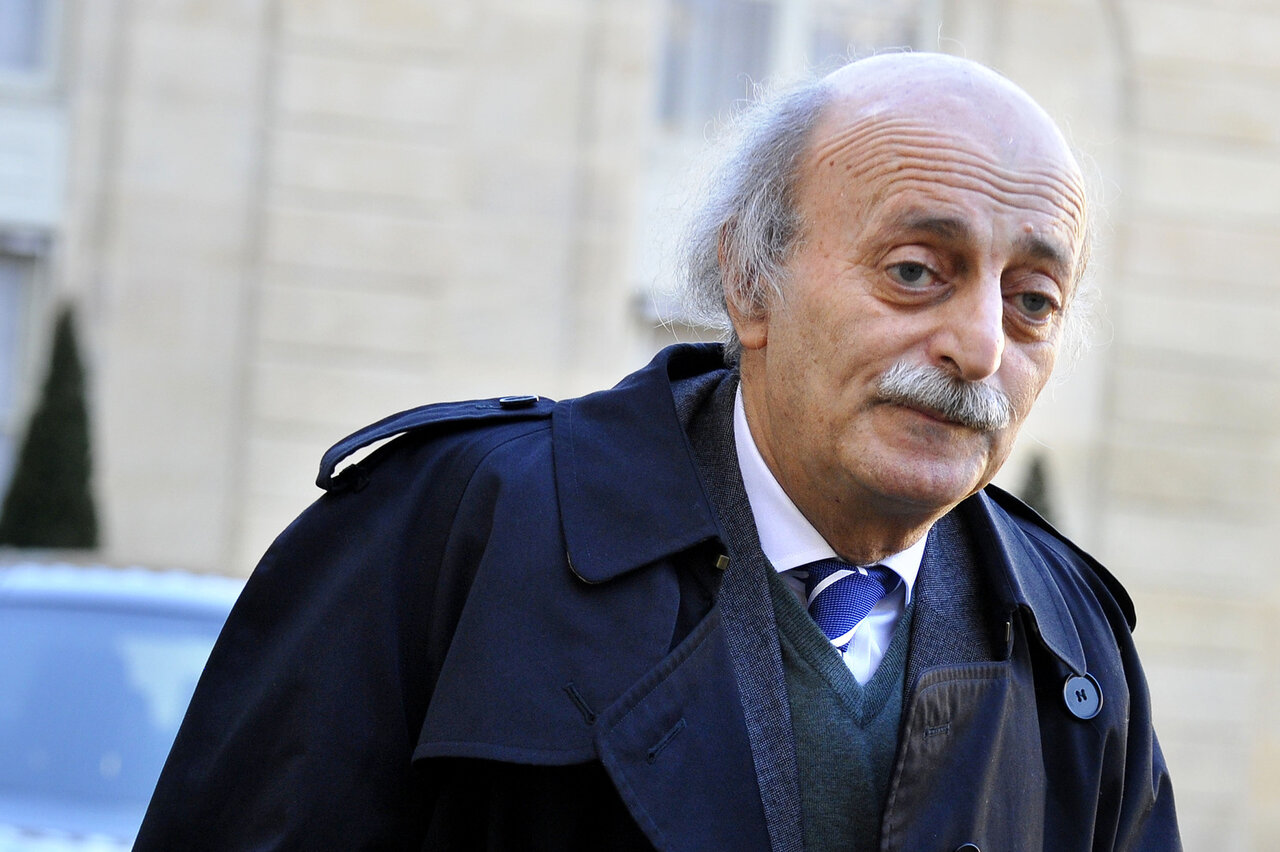Questioning identity of Shebaa Farms is free service to Israel!

SOUTH LEBANON — Druze leader Walid Jumblatt’s statement regarding the non-Lebanese nature of the Shebaa Farms has sparked widespread condemnation in Lebanon, with some believing that this questioning serves only the Israeli enemy.
Jumblatt, the former leader of the Progressive Socialist Party, had said that “the Shebaa Farms are Syrian land occupied by Israel.”
Calling on Hezbollah to disarm as “Israel and the West have won and a new page has been opened in the Middle East,” he stressed that weapons should be “exclusively in the hands of the Lebanese state.”
While the Israeli occupation army continues its policy of carpet-bombing villages bordering occupied Palestine by taking advantage of the silence of the Lebanese government and the so-called international community, Ynet revealed that this systematic destruction guarantees “the establishment of a settlement on Mount Doug [the Hebrew name for the Shebaa Farms].”
According to the Hebrew website, this colonial settlement would be called “Iron Swords.”
Ynet underscored that if “the army and government wanted to return the northern settlers, ensure the restoration of security, and eliminate the threat, they should open Mount Dov to them so they could explore the stunning natural trails.”
On August 31, 1920, French High Commissioner General Henri Gouraud issued Order No. 318 establishing the state of Greater Lebanon, which included the entire Hasbaya District (the Shebaa Farms had historically been part of the district).
When the French drew their maps, they adopted a military demarcation method that followed the succession of mountain lines (vertex) and peaks as international borders rather than district borders.
Thus, the Lebanese town of Shebaa was established within the borders of Greater Lebanon, while its own indigenous farms were placed within the Syrian borders.
Then, the residents were aware of what had happened. Several attempts were made by the Camille Duraffourd Committee (tasked with correcting the borders). It produced several modified maps whereby the area of the Shebaa Farms continued to shrink until the defeat of the French occupation.
In 1946, Lebanon and Syria reached a real estate solution that established the borders of the Shebaa Farms. Lebanon agreed to its minimum rights, but the borders were not amended through the UN.
This was followed by Israel’s occupation of the Syrian Golan Heights and the Shebaa Farms in 1967, and the displacement of the farms’ residents to the town of Shebaa.
When Israel was defeated in 2000, it did not withdraw from the Shebaa Farms. Instead, it fortified its position behind the Blue Line, whose drafters considered the farms to be Syrian in flagrant favoritism toward Israel. This was despite Lebanon having submitted all the necessary documents to the United Nations, proving its ownership of the Shebaa Farms.
Decades later, the people of Shebaa remain determined to recover the farms, which have now become a unifying national issue, not open to discussion or compromise.
Meanwhile, the Shebaa Municipality rejected Jumblatt’s statement, affirming the existence of “official documents verified by the Lebanese state and the United Nations that confirm this historical and legal fact.”
The municipality emphasized that “the Shebaa Farms are occupied Lebanese territory, sealed with the blood of its sons and the honorable people of Arqoub, who have never hesitated to defend it with their bare chests, enduring the occupation and marginalization with dignity and steadfastness.”
The municipality called on officials to “exercise the utmost responsibility in their statements and to avoid positions that could complicate the current situation or be exploited to mislead public opinion and serve the enemy.”
Amal Movement MP Qassem Hashem asked in astonishment: “Is this how we provide free services to the Israeli enemy so that there is no justification for resistance?”
Hashem warned that “any silence regarding what is being planned and the abandonment of the Lebanese identity of the Shebaa Farms will be considered a betrayal of national security. This will be the basis for dealing with and holding accountable.”
For its part, an association of local residents expressed surprise that some political forces “are willing to give up national sovereignty despite their certain knowledge of its Lebanese identity, as evidenced by the ownership deeds registered in the Lebanese Land Registry, as well as dozens of official correspondence between Lebanon and Syria dating back to the early 1940s, confirming its Lebanese identity.”
They noted that the campaign of simultaneous and coordinated statements raises suspicions, warning against “any attempts to abandon our rights and our land in the Shebaa Farms and the Kfar Shuba Hills.”
Like the Shebaa Farms, Israel occupies seven Lebanese villages abandoned by the French Mandate: Ibil al-Qamh, Hunin, Nabi Yusha, Quds, al-Malikiyah, Salha, and Tayrbikha (their area is approximately 74 km², while the Shebaa Farms area is 42 km²).
During the recent aggression, these villages returned to the spotlight with their false Hebrew names, adding to the historical injustice they suffered, both officially and in the media, as these villages are not on the political map of Walid Jumblatt and his loyalists.
